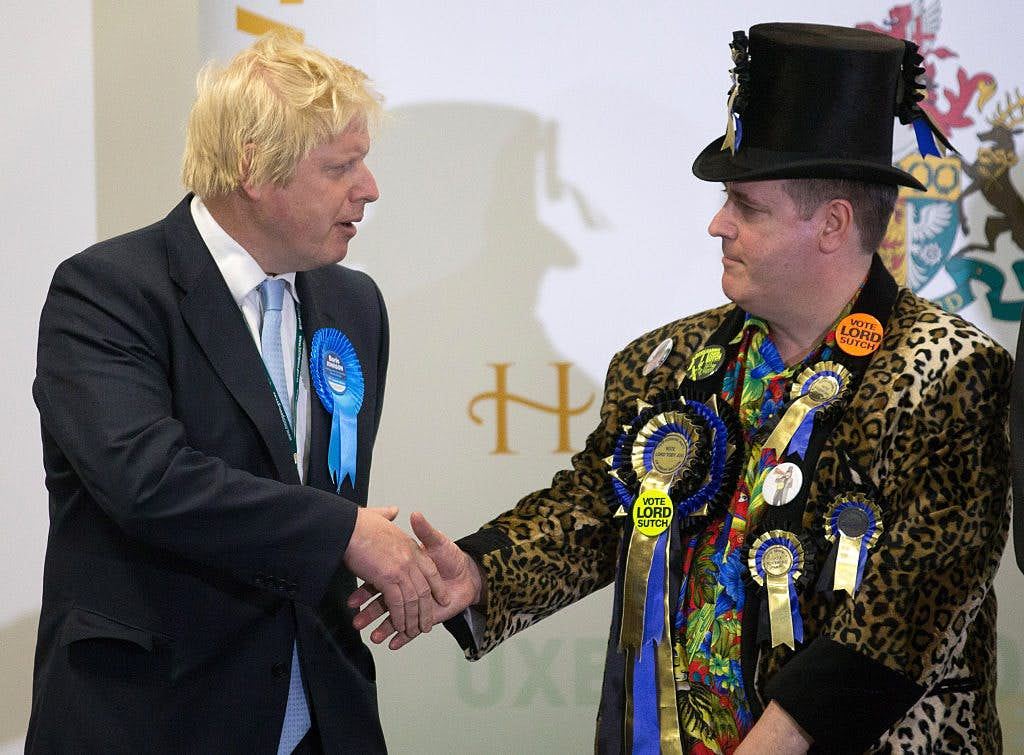This year marks sixty years since the Russian philosopher and literary critic Mikhail Bakhtin published Rabelais and His World, a book that seemed an unlikely candidate for enduring cultural influence. Written under Soviet censorship and disguised as scholarship on a sixteenth-century French satirist, it was a bold exploration of how societies express themselves through laughter, parody, and festivity. At the centre of Bakhtin’s argument was the notion of carnival: those moments in late medieval and Renaissance life when the ordinary rules of hierarchy were suspended, when the high were mocked and the low were exalted, when the body’s appetites were celebrated rather than hidden. From agricultural feasts to the initiation of knights, clowns and fools mimicked the serious participants, with Church feasts no less accompanied by a comic folk aspect. Carnival, he insisted, was not trivial amusement but a profound social necessity — a release of energies through which a community might renew itself, confront its own contradictions and discover fresh bonds of solidarity.
What made Bakhtin so radical was his insistence that the comic and the grotesque reveal truths that are inaccessible to the institutions of solemn authority. In carnival laughter, the mask and the parody, he saw not an escape from reality but a deeper engagement with it. The “grotesque body”, as he described it — eating, drinking, laughing, exceeding its boundaries — stands in contrast to the polished, self-contained body of rulers and institutions. Through carnival, societies give voice to the unsayable, expose the temporary nature of all power, and remind themselves that no order is permanent — through laughter “the world is seen anew, no less (and perhaps more) profoundly than when seen from the serious standpoint” (Rabelais and His World, Trans. by Helene Iswolsky (Bloomington: Indiana University Press (1984)), 66). The grotesque, in this sense, is not distasteful but positively subversive and regenerative.
Governments in Britain and Europe still struggle to comprehend why laughter, inversion, and spectacle can wield such force
What makes Bakhtin’s reading of Rabelais so striking, sixty years on, is how directly it speaks to our contemporary political landscape in the West. For all their data-driven policies and managerial competence, successive managerial governments in Britain and Europe still struggle to comprehend why laughter, inversion, and spectacle can wield such force — witnessed in the liberal media’s distaste over the past two decades for the crumpled hijinks of Boris Johnson, the vaudeville energy of Nigel Farage or the orange-hued reality show that is the American presidency. Those three men, however, have powerfully grasped that man cannot live by the latest policy consultation alone and that people will always crave moments of release, images of the grotesque, and voices that puncture solemnity and expose the vulnerability of the establishment. One need only observe the Reform conference last week to see this performed with remarkable energy and festivity, with Dame Andrea Jenkyns serving as its very own minstrel.
Perhaps one of Bakhtin’s most unsettling insights, however, is that carnival never stays carnival for long. The laughter, parody, and inversion that once mocked authority always carry within them the seeds of their own ossification. Once victorious, the jesters so often become the judges: movements born in joyous defiance harden into new orthodoxies, policing their own rituals of seriousness with the very severity they once ridiculed and leaving those in authority struggling to understand the new terrain.
An example of such disorientation might arguably be discerned in the political class that defined itself through the movements of liberation in late twentieth-century Britain — not least the children of New Labour. As his parish priest, I’ve enjoyed getting to know in Chelsea a gentleman in his nineties — let’s call him Peter — who has related to me the extraordinary transformation of queer life in London from his youth in the late 1940s to the present. After the Second World War, Peter knew the “carnival” power of parody, excess, and inversion in a gay community defined not by flags, lobbyists or month-long celebrations sponsored by faceless multinationals but by fear of the police, imprisonment, and brutal homophobic violence. His stories are remarkable, not least his thrilling accounts of evading official capture on nights out and the sacrificial care that gay men offered to each other in the face of homophobic persecution — not least, interestingly, in the “safe spaces” that were Anglo-Catholic churches in the city.

What is also fascinating is Peter’s reflections on how that which began as joyous defiance in his youth has now become a new establishment that he finds joyless and individualistic (not least through the disembodied transactions of Grindr), and which patrols speech and behaviour with a severity once reserved for the very hierarchies it overturned. What was once grotesque exuberance in Bakhtin’s terms has, with good intent, become part of the calendar of official civic ritual, with the lanyards and flags obligatory across our public institutions. Similarly, student movements that once thrived on mockery and play now find themselves absorbed into the bureaucracies of NGOs and our universities, where the spontaneity of carnival has given way to countless committees, officers, policies and criminalising codes of conduct. The carnival jester, in Bakhtin’s terms, has turned into the court official: laughter has hardened into protocol and the grotesque body has been disciplined into the body of power.
Yet when such carnival is absorbed into officialdom, stripped of its spontaneity and pressed into protocol, the danger is not only sterility but something darker. For if festivity is denied its regenerative role, the space is quickly filled by parody without purpose. When public life is overtaken by the clowns, carnival curdles into nihilism as the jeer replaces the anthem and the viral clip displaces the common story. Social media has become the new carnival square, certainly — noisy, garish and incessant — but it is emptied of the solidarity Bakhtin described in its reward of excess and mockery; it unites us only in derision.

In this party conference season, however, it is worth remembering how British politics has long employed the theatrics of carnival as a means of conveying substantial ideas. The suffragettes understood this: parades of women in white dresses, sashes of purple, green and gold, and banners embroidered with saints and heroines — what the art historian Lisa Tickner has called “the spectacle of women”. Labour, too, built its movement not just on speeches but on sound. Patrick Joyce, for example, has written about how brass bands and banners turned the Durham Miners’ Gala into a civic pageant as much as a rally, a living drama of class solidarity. The Conservatives, for their part, also used seaside rallies and party conferences in Blackpool or Brighton as carnivals in their own right: charabancs of activists, marching bands, comic turns and leaders performing as ringmasters rather than administrators. Earlier still, we might think of the vast Chartist gatherings of the 1840s which turned political demand into popular drama, with music, banners, and speeches binding huge crowds into a single body. All of this was theatre: performance, ritual and festivity through which national politics claimed its place in the imagination. The main political parties used to combine enormous fun for the masses with serious policy intent; today — as many a party activist wearily records upon their return from a Labour or Tory conference in Manchester, Brighton or Blackpool — it is increasingly more akin to the controlled monotony of the boardroom Powerpoint presentation.
The Prime Minister and the Leader of the Opposition both hope that the revival of their respective parties’ fortunes depends upon the display of managerial seriousness with an active scorn for “the fools” who threaten sound governance. Understandable though such attitudes may be since the carnival became the criminal under Boris Johnson, to leave festivity to the clowns is to concede the emotional ground of politics and thus to risk allowing derision and parody to monopolise the collective imagination. The answer is not a puritanical disdain for the fun and energy visible in the ranks of Reform. Rather, at a more fundamental level, the leaders of our historic parties must seek the recovery of politics as a place where laughter and seriousness belong together. From Churchill’s wit to Thatcher’s camp bravura, from Blair’s embrace of Richard Curtis’s idiom to Boris’s own studied buffoonery, a healthy dose of British irony can serve vision as well as derision. Bakhtin would have recognised in each a carnival that can galvanise a crowd in the service of serious political ambition. If our leaders can yet relearn how to blend laughter with gravity, carnival might cease to be the preserve of Farage and become instead the stage upon which Britain might save itself from him.












